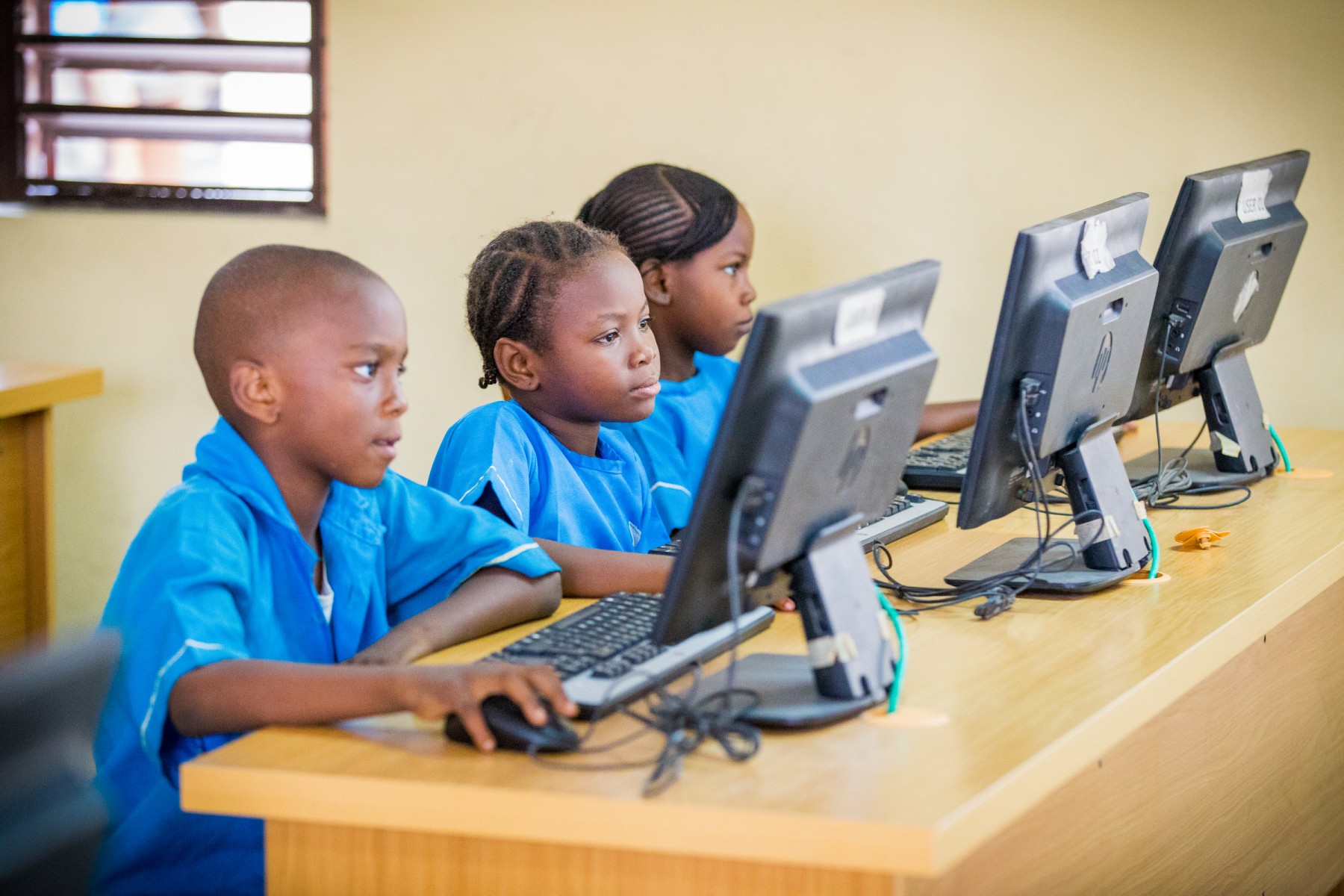Nigeria: Embracing literacy in a digital age

Children in Nigeria reading on desktop computers. Photo © Oando Foundation
“Literacy is not a luxury, it is a right and a responsibility. If our world is to meet the challenges of the twenty-first century we must harness the energy and creativity of all our citizens” – Bill Clinton.
Over the past 51 years, the United Nations has designated the 8th of September as a day to celebrate literacy. The importance of this day cannot be underscored as governments, international bodies and education stakeholders work to create awareness and promote solutions to challenges facing the attainment of literacy for all by 2030.
The theme for the 2017 literacy day celebration, “Literacy in a digital world”, focuses on the use of digital tools for teaching and learning in today’s age of information. Beyond the basic ability to read, write and calculate, demands of today’s world require students who can embrace information technologies and their application. Yet, there exist a significant number of school children and teachers who lack access to digital technologies, and more importantly the competence to navigate them. The question therefore remains: how do we bridge the literacy gap and digital divide that threatens to leave millions of people marginalized in increasingly digitally driven societies?
The UN Sustainable Development Goal 4 advocates for equipping young people and adults with relevant skills, including technical and vocational skills, for decent employment and entrepreneurship by 2030. With 750 million youth and adults globally who cannot read and write and 250 million children who are failing to acquire basic literacy skills, it is clear that a collaborative approach is needed to tackle the literacy and education challenge, if we are to achieve the SDG4 target. The Nigeria Vision 2020 document has outlined plans to make the curriculum in schools more relevant to the needs of the labour market with emphasis on ICT diffusion and targeted skills development. In turn, there has been a large response by the public, private, and civil sector to address the transforming educational needs of Nigerian youth such as the introduction of audio-visuals in classroom learning, digital media programmes, distribution of educational tablets to students, and training of teachers in modern literacy skills.
It is still common place however to see pupils and teachers, especially those in public schools, being guided by obsolete curriculum that encourages a docile, theory-focused learning content, limiting creativity and innovation among students. Beyond the inclusion of ICT in the national curriculum and provision of computer equipment to schools; prioritizing digital learning in fun and creative ways for young people and their teachers remain a vital tool for promoting comprehension through visual displays, and passion for Science, Technology, Engineering and Math (STEM) education. ICT tools allow pupils and their teachers a level of flexibility to research, explore and infuse global perspectives that enrich their learning experiences. Digital learning continues to strengthen communication and critical thinking skills, enabling diverse technology-driven success in today’s world
In an increasingly digitized world, it is important to integrate ICT skills within the teaching curriculum as they enhance them. Oando Foundation through its Adopt-A-School initiative is integrating this transformational learning model across adopted schools through the provision of solar-powered ICT Centers, capacity building for ICT teachers, and educational software to aid learning for all grade levels. The Foundation has also partnered with various organisations including Coder Dojo Ireland, US Consulate Nigeria, Theirworld, Sumitomo Chemical Japan to provide modern technology resources to schools, introduce coding and computing skills to teachers and pupils with special emphasis on girls and STEM education. It is expected that the coding project will benefit over 150 girls.
On International Literacy Day, we restate our commitment to building world class basic education systems that not only expand access to education but also improve the literacy levels of pupils in marginalized communities. We have no choice but to discontinue the old teaching methods that have clearly failed to put our young people in the league of the most literate people in the world. Collective action from key stakeholders in the education sector is vital to designing ICT-driven educational policies, thereby improving literacy statistics and ensuring that pupils move from basic literacy and are able to compete in today’s digital age.
